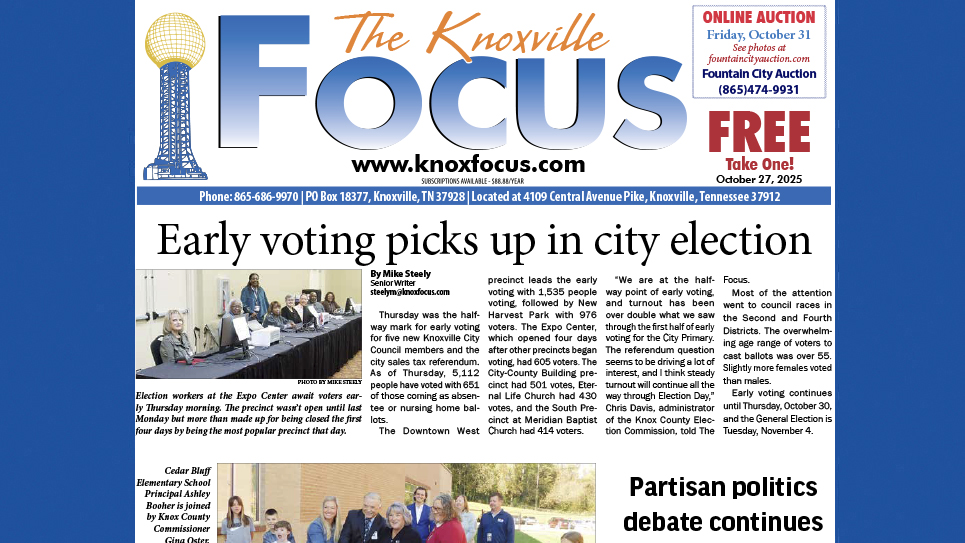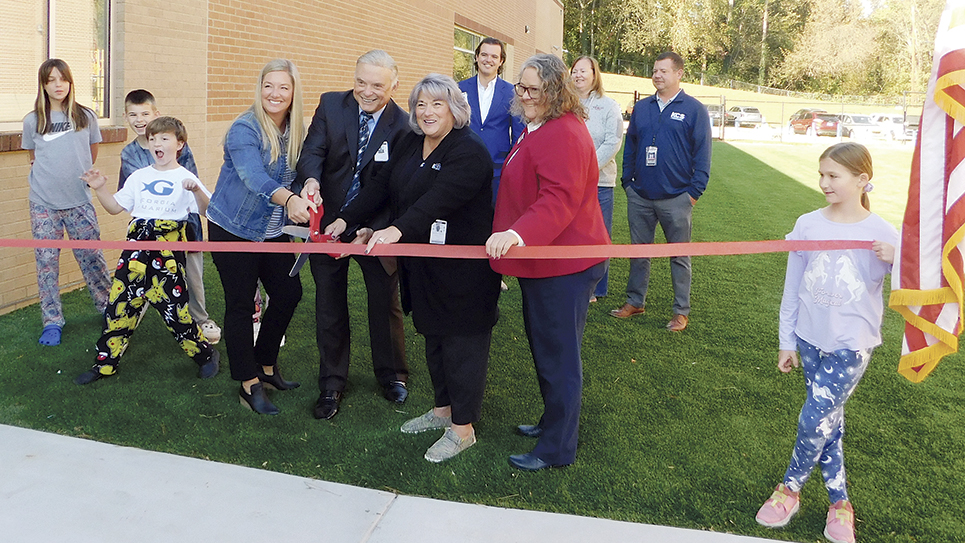As we reported last week on Knox Focus 24/7, three Knoxville preschool and elementary school children and their parents have filed suit in United States District Court in Nashville against Knox County Schools and the Tennessee Department of Education. (http://24×7.https://www.knoxfocus.com/wp-content/uploads/2015/09/4-First-Amended-Complaint.pdf)
The suit alleges that children with pervasive disabilities such as autism, intellectual disability, developmental delays, or multiple disabilities are placed in more segregated settings than is necessary or legal. The suit alleges these children are placed in a “comprehensive development class” where they are taught basic, functional skills, but denied access to a more rigorous educational experience that will better assist them in life.
The lawsuit explains how funding is a source of the problem, with KCS receiving more state funding for placements in “more restrictive environments,” even though federal funding is conditioned on less restrictive environments.
We spoke with Kim Kredich, a parent with three sons – one with a pervasive disability – at West High School, who has served as a volunteer advocate for the plaintiffs in this case as well as countless others over the past decade. She said this lawsuit is important for more than just the three families currently represented, those who may join the lawsuit, and all students with disabilities and their families.
“This is important for our entire community. Every student, every family, every citizen is being denied the data-proven benefits of inclusive education when unnecessary and unlawful segregation of students with disabilities occurs at a systemic level, driven by faulty funding mechanisms. This extends far beyond the classroom, where study after study shows that students with and without disabilities make greater academic and overall gains through best inclusive educational practices,” she said.
Kredich points out that as a simple matter of economics our county is spending more money per student who is bussed out of zone to a segregated setting than it would cost to provide an aide in the classroom for that student in his or her neighborhood school. She said, “That aide can and should act as extra support to the entire class, which is an example of why test scores go up in inclusive classrooms – because they can provide extra adult support to the teacher and all students.”
Studies show that later on in life students with pervasive disabilities who are included in general education settings are far more likely to seek further education (e.g., the UT Future program), gain employment, and live independently. These positive results mean greater economic savings to the community in the long term as well.
Kredich believes she has done everything she can to alert Knox County and TDOE about the problems that this lawsuit addresses. She and her husband even met with Dr. McIntyre within the first few months of his arrival in Knoxville as Superintendent back in 2008.
“I don’t know how many times I have presented these issues in front of the School Board, written to Dr. McIntyre and School Board members, gone into IEP meeting after IEP meeting to try to turn this district around so that it complies with federal law. But there is only so much a volunteer advocate can do. At a certain point, when segregation is so embedded in the practice and culture of an educational system, lawyers do need to step in.”
Kredich also documented her concerns to TDOE. In 2013, she submitted public comment to the state in hopes of a change. Her comment reads, in part:
Much of this communication documents a history of our attempts to communicate concerns over what we and other parents of children with disabilities believe is the Knox County School (KCS) District’s long-standing lack of compliance with IDEA, especially those issues having to do with Least Restrictive Environment (LRE) in Pre-K and school-aged years for children in KCS.
We have tried to communicate our worries for the Knox County School District in the past, but have been unsuccessful in finding an effective route for voicing these concerns to those who can provide systemic change. We even bring to School Board members’ attention the possibility of a class action lawsuit, for example, in the case of the apparently long-standing violation of preschool LRE; we imagine that the documented lack of consideration for children’s preschool LRE over the last decade might be grounds for a lawsuit involving potentially thousands of children in this district who were denied the consideration of inclusive educational experiences from age three and then up through their school-aged years (based on data from the initial segregated placement).
Nobody wants a lawsuit to force change in a school system, but people are starting to feel that this is perhaps the only way to effect positive change. We hope that by submitting this public comment there is a chance the Tennessee Department of Education will implement some focused monitoring of the Knox County School System so that we may see some State-level compliance attention paid to these issues of preschool LRE and the appropriate provision of supplementary supports and services.
The children and parents are represented by Justin Gilbert of the Chattanooga and Franklin law firm Gilbert, Russell, McWherter, Scott & Bobbitt. Mr. Gilbert says: “The aim of the suit is to explain how and why certain kids are being segregated at such a high rate in Knox County. The subject matter is complex, but immensely important. We hope to now work with KCS and TDOE to make fundamental changes in how these kids’ educational needs are assessed at such an early age.” Further inquiries may be addressed through Rachael Cook at rcook@gilbertfirm.com






